Optical Lattice Experiment
The ultracold systems are ideal platforms for studying many-body physics in strong coupling regime, emulating a definite Hamiltonian, investigating quantum correlation and quantum fluctuation, and manipulating multipartite entanglement in an unprecedented way. Ultilizaing ultracold bosons in optical lattices, we aim at realizing many-body entangled quantum states. Such quantum states can be used for furture scalable quantum computing and quantum simulating.
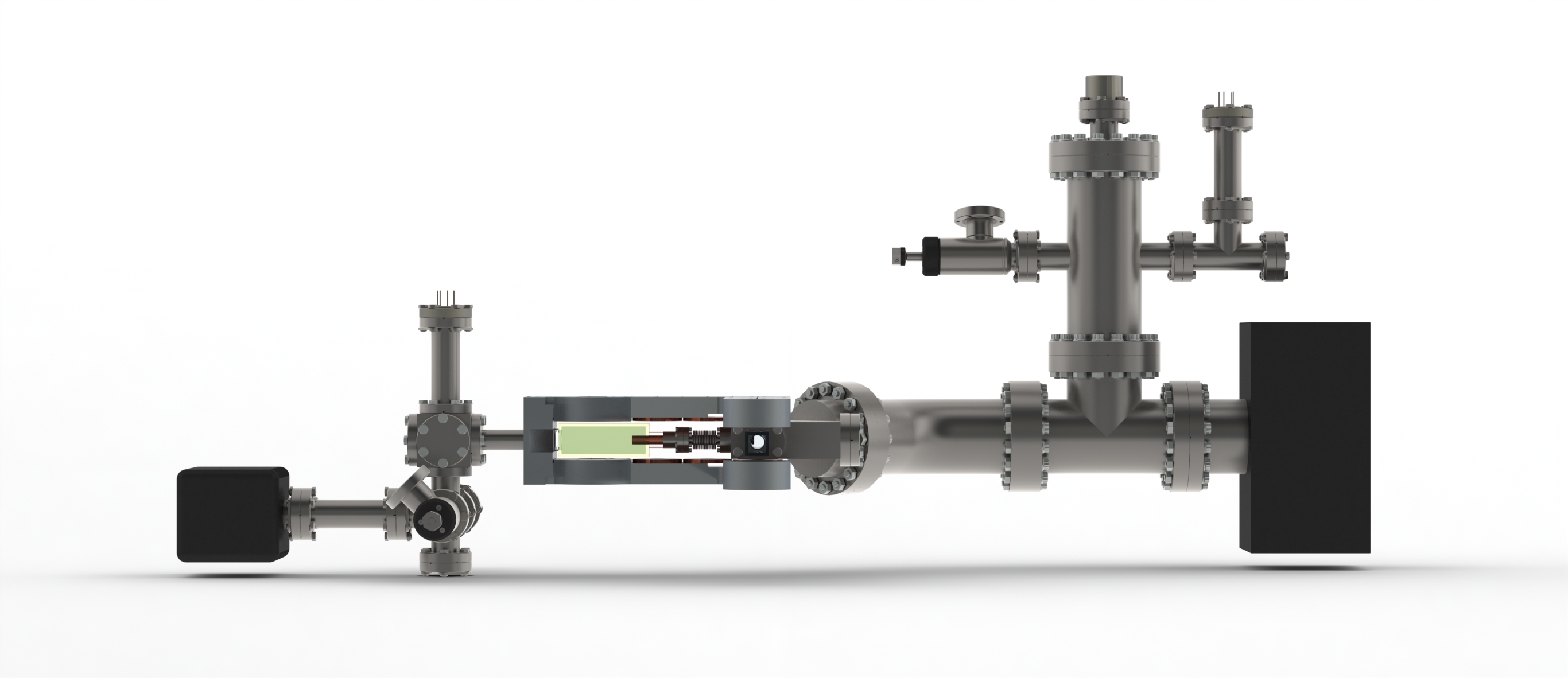
Project: 87Rb, Optical Lattices
LAB: 99.408
Phone: 19469
Poster:
1. Generation and Detection of Atomic Spin Entanglement in Optical Lattices (DPG 2016)
2. Observation of Four-body Ring-exchange Interactions and Anyonic Fractional Statistics (DOQS 2016, DPG 2017)
News from the lab:
Quantum criticality and the Tomonaga-Luttinger liquid in one-dimensional Bose gases
October 20, 2017
Our work on studying the quantum criticality and Tomonaga-Luttinger liquid is now published on Phys. Rev. Lett..
It has been highlighted as Editors' Suggestion. See viewpoint by Thierry Giamarchi, from University of Geneva, Switzerland: "Theory for 1D Quantum Materials Tested with Cold Atoms and Superconductors".
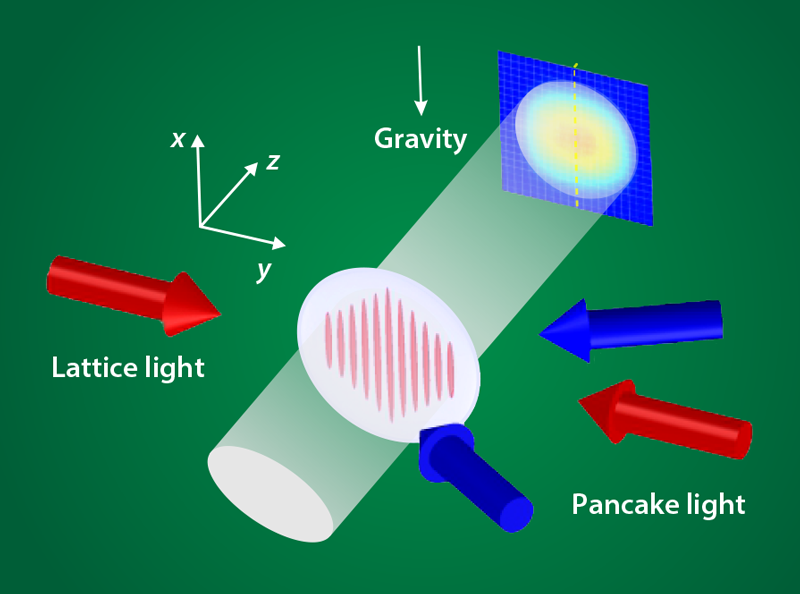
One-dimensional (1D) materials—from nanowires to carbon nanotubes to linear arrays of cold atoms—hold promise for applications in nanoelectronics, sensing, energy harvesting, and quantum information processing. They are also ideal for exploring fundamental quantum phenomena at the nanoscale. Their theoretical description relies on a model known as the Tomonaga-Luttinger liquid (TLL), which can account for the many-body interactions within a 1D ensemble of quantum systems (fermions, spins, or bosons). To date, however, only a few of the aspects of this theory have been experimentally tested. This is mostly due to the difficulty of realizing an ideal and controllable 1D system experimentally. ...
Four-body ring-exchange interactions and anyonic statistics within a minimal toric-code Hamiltonian
August 29, 2017
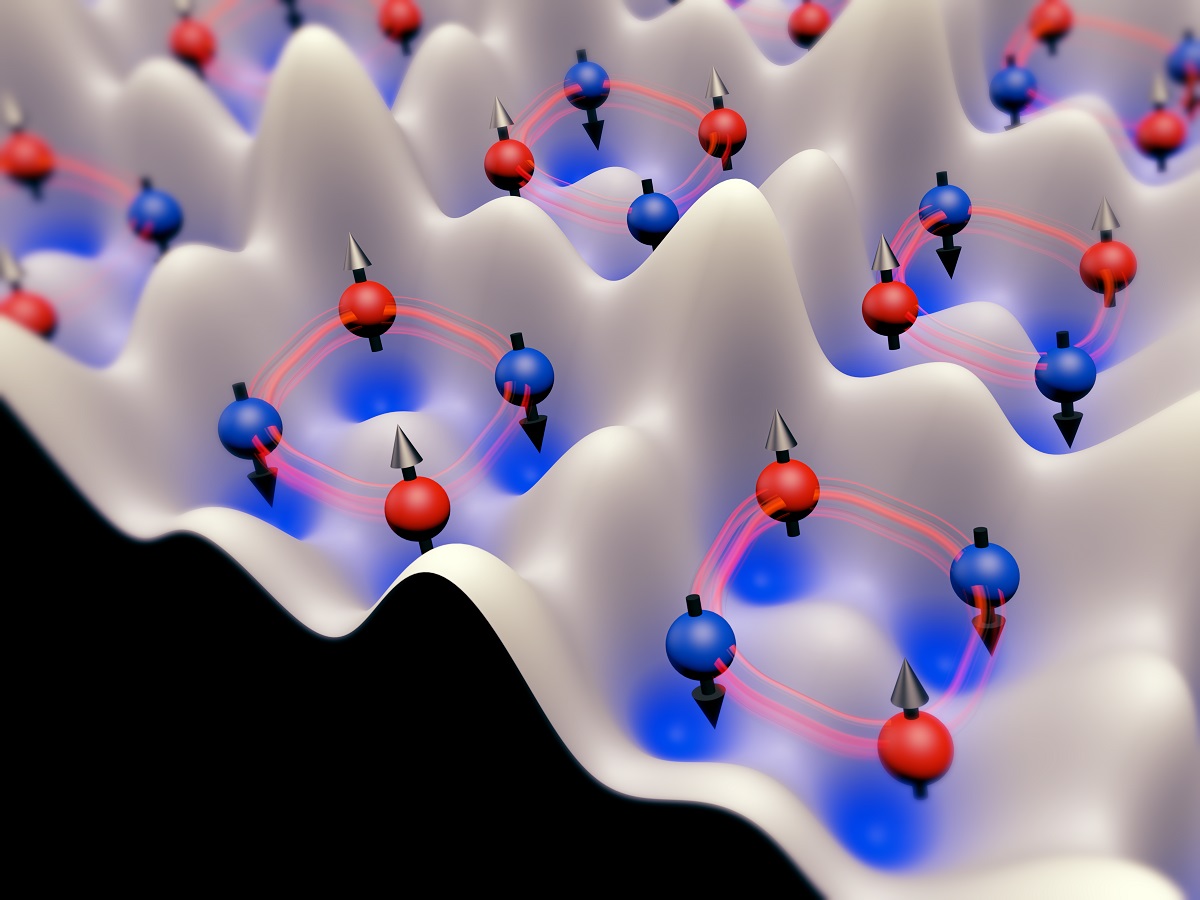
Ring-exchange interactions are basic elements needed for realizing topological quantum computation. These interactions and anyonic statistics have been engineered using ultracold atoms in an optical lattice.
A preprint article is online at Nature Physics now.
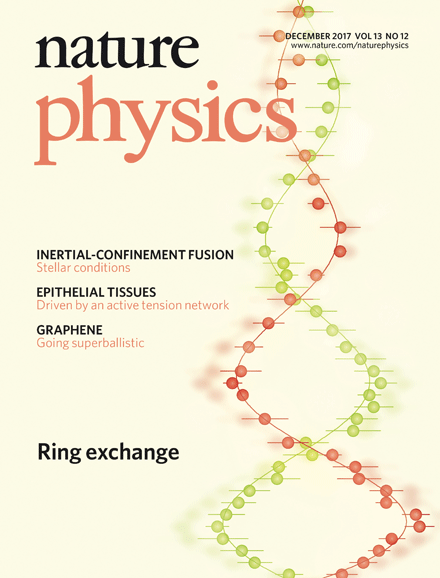
Quantum criticality and Luttinger Liquid in 1D Bose Gases
July 19, 2017
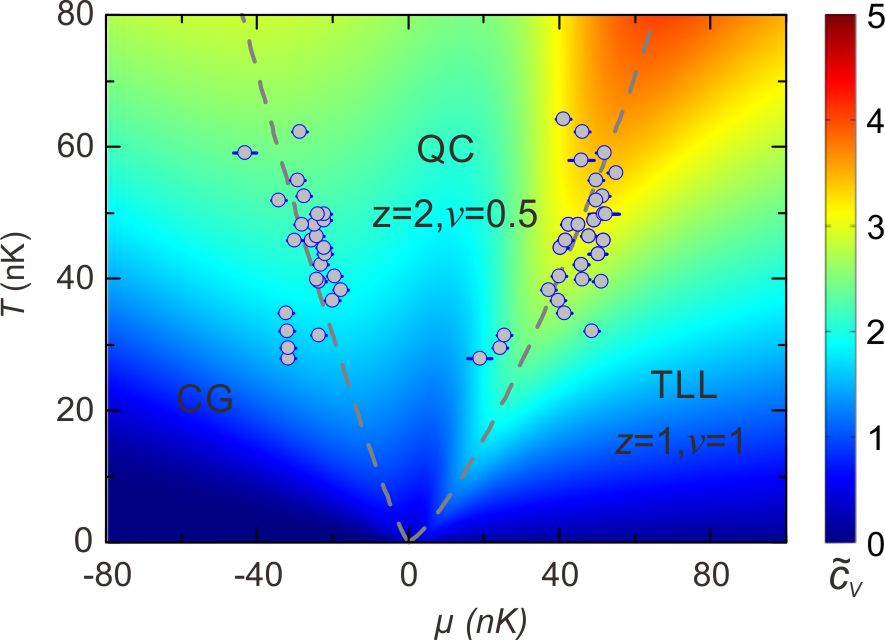
We experimentally investigate the quantum criticality and Tomonaga-Luttinger liquid (TLL) behavior within one-dimensional (1D) ultracold 87Rb atoms. Based on the measured density profile at different temperatures, the universal scaling laws of thermodynamic quantities are observed. The quantum critical regime and the relevant crossover temperatures are determined through the double-peak structure of the specific heat. In the TLL regime, we obtain the Luttinger parameter by probing sound propagation. Furthermore, a characteristic power-law behavior emerges in the measured momentum distributions of the 1D ultracold gas, confirming the existence of the TLL.
A preprint article is on arXiv now.
Welcome new Member!
May 1, 2017Klaus Kades is going to join the group for his Master thesis! Welcome!
Andreas has his Thesis defense in Technische Universität Kaiserslautern
August 1, 2016Congratulations to Andreas Reingruber for his sucessfull thesis defense! His thesis is about the work on the lattice project, with title of "Two- and four-body spin-exchange processes in optical lattices".
Hui Sun joins the lattice team
July 14, 2016Hui Sun from QPQI (USTC, Hefei) is going to join the lattice team with the CSC fellowship!
"Generation and Detection of Atomic Spin Entanglement in Optical Lattices" is now Online at Nature Physics
March 22, 2016Nature Physics (2016), Published online 21 March 2016, doi:10.1038/nphys3705
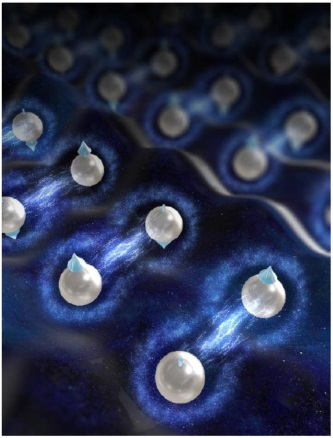
|
Ultracold atoms in optical lattices hold promise for the creation of entangled states for quantum technologies. Here we report on the generation, manipulation and detection of atomic spin entanglement in an optical superlattice. Using a spin-dependent superlattice, atomic spins in the left or right sites can be individually addressed and coherently manipulated with near-unity fidelities by microwave pulses. The spin entanglement of the two atoms in the double wells of the superlattice is generated via the dynamical evolution governed by spin superexchange. By monitoring the collisional atom loss with in situ absorption imaging we measure the spin correlations of the atoms inside the double wells and obtain a lower bound on the entanglement fidelity of 0.79±0.06, and a violation of a Bell’s inequality S=2.21±0.08. |
Four-spin ring-exchange interaction is observed!
Feb 19, 2016Ring-exchange interactions between spins are experimental observed in a four-site optical plaquette created by a two-dimensional spin-dependent superlattice. A minimum instance of the Kitaev's toric code is simulated, and the anyonic statistics between its elementary excitations are observed. A preprint article is on arXiv now.
Welcome new visitors!
January 16, 2016Yong-Guang Zheng from QPQI (USTC, Hefei) is going to join the lattice team for the next three months! Welcome!
Welcome new visitors!
June 20, 2015Hui Sun from QPQI (USTC, Hefei) is going to join the lattice team for the next three months! Welcome!
Bing Yang has his Thesis defense in QPQI, Shanghai
June 5, 2015
Bing Yang from the Lattice Group has succefully defended his thesis at Shanghai. Congratulations!
Reference:
Bing Yang, Experimental study on spin entanglement with ultracold atoms in optical lattices.
Spin entanglement is measured
May 25, 2015
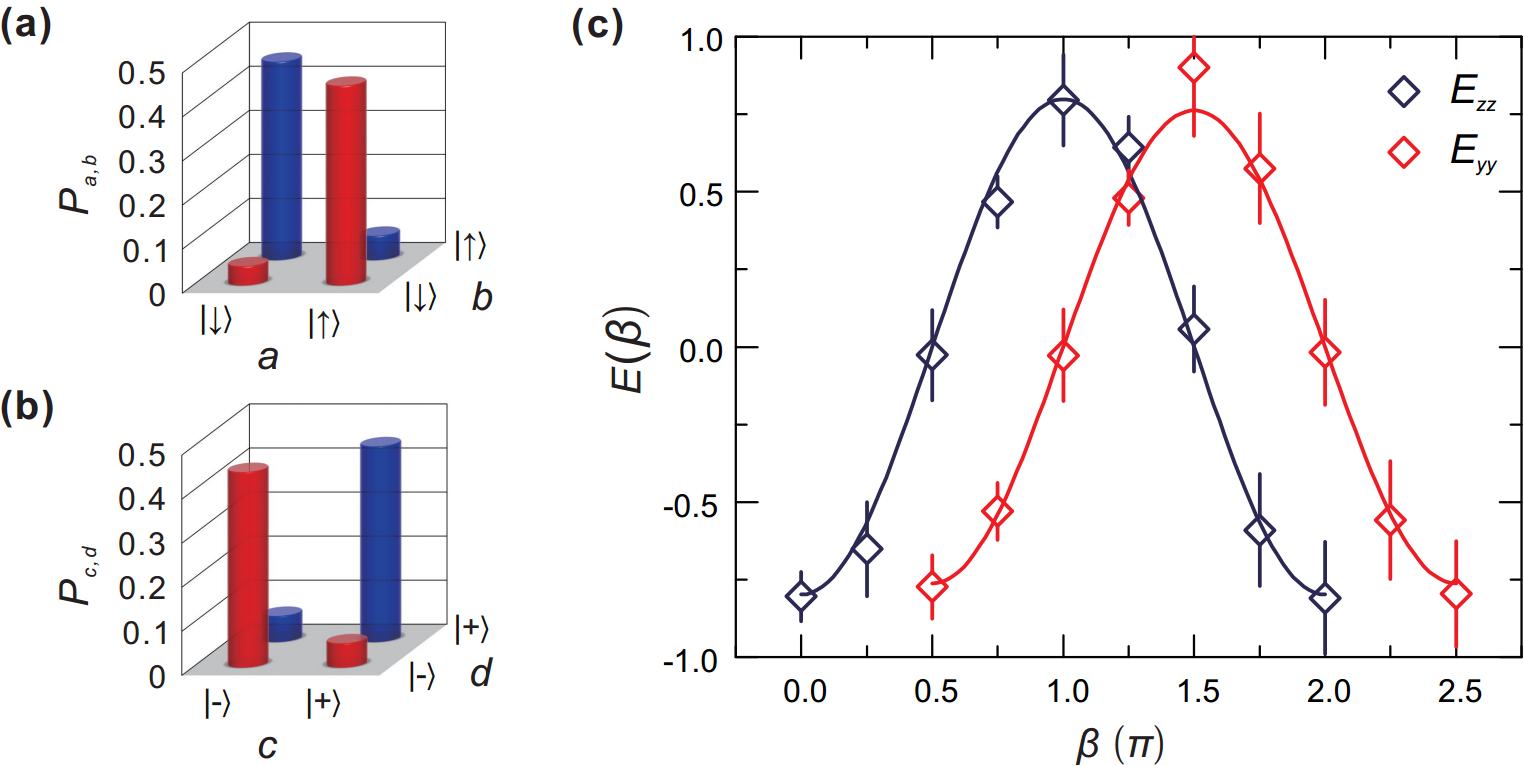
Spin-spin correlations are measured via the collisional atom loss with in situ absorption imaging, and therefore the entanglement is measured. A preprint article is on arXiv now.
Super-exchange interactions are observed
January 15, 2015

|
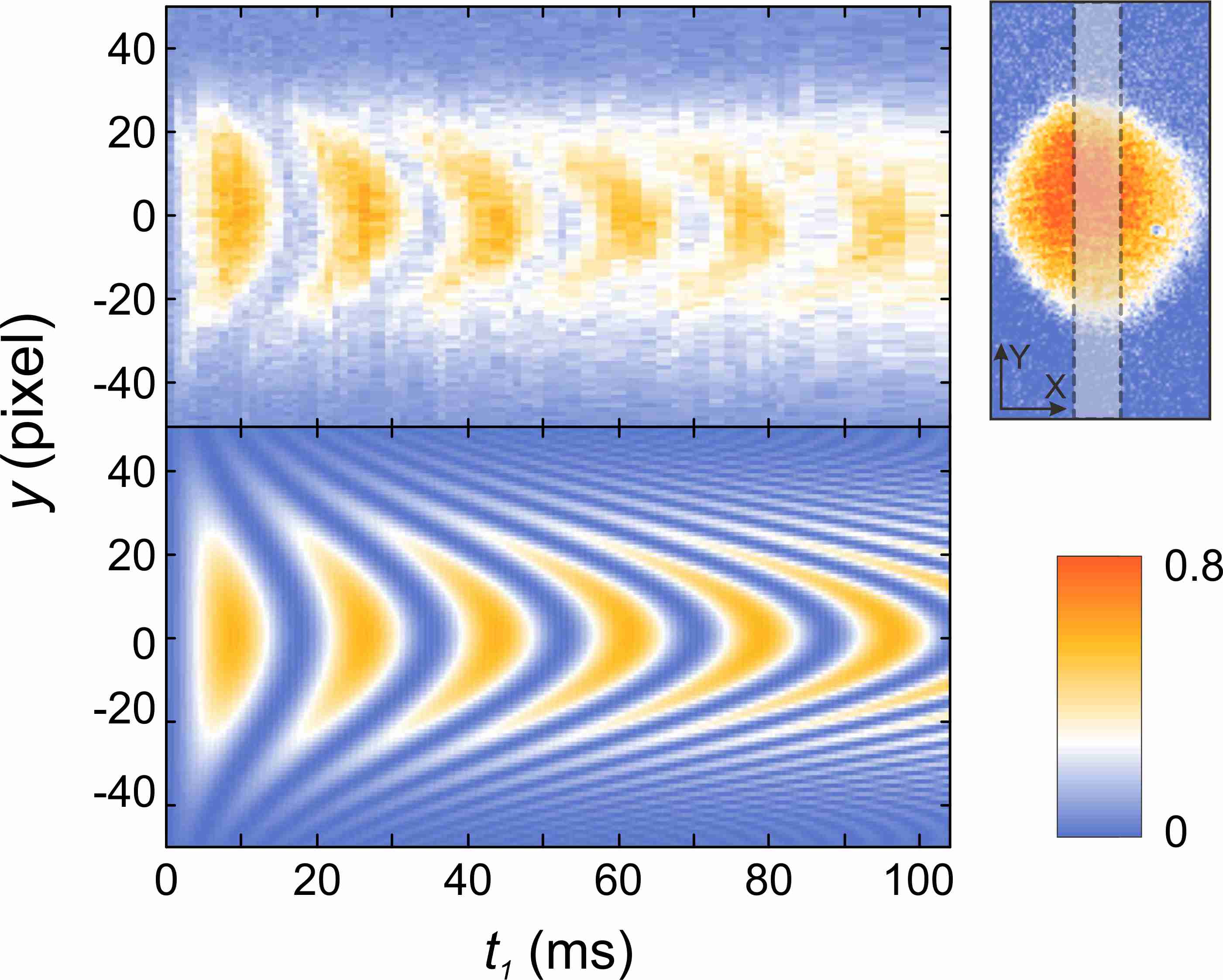
|
Time resloved oscilations driven by super-exchange interaction in isolated superlattice wells are observed. Strong dephasing by transversal inhomogeneity are analyzed with insitu imaging methods.
Torsten Mandel and Xiao-Fan Xu have their Thesis defense in Heidelberg
July 15, 2014
After a sucessfull thesis defense Torsten Mandel and Xiao-Fan Xu from the Cold-Atom team obtain their PhD degrees. Congratulations!
Reference:
Xiao-Fan Xu, Manipulating quantum entanglement with atomic ensembles and with atoms in optical superlattices : towards scalable quantum information processing.
Torsten Mandel, Quantum manipulation of (ultra-)cold atom systems for information processing.
Han-Ning has his Thesis defense in QPQI, Shanghai
June 5, 2013
After a sucessfull thesis defense Han-Ning from the Cold-Atom team obtain their PhD degrees. Congratulations!
Reference:
Han-Ning Dai, Quantum Information Processing with Cold Atoms.
Move to New Lab
March 28, 2013

Lab moving from Philosphenweg to Im Neuenheimer Feld. System recovery is now under processing!
Producing a BEC
August 15, 2011
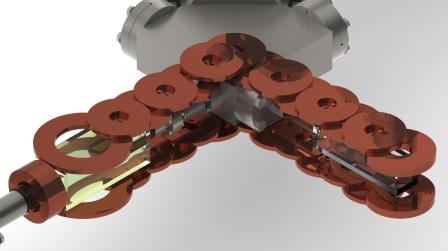
|
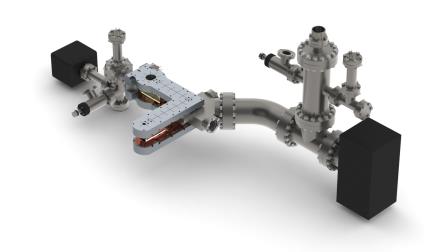
|
A Bose-Einstein condensate of 87Rb was reached in lattice lab!
EDV Abteilung

